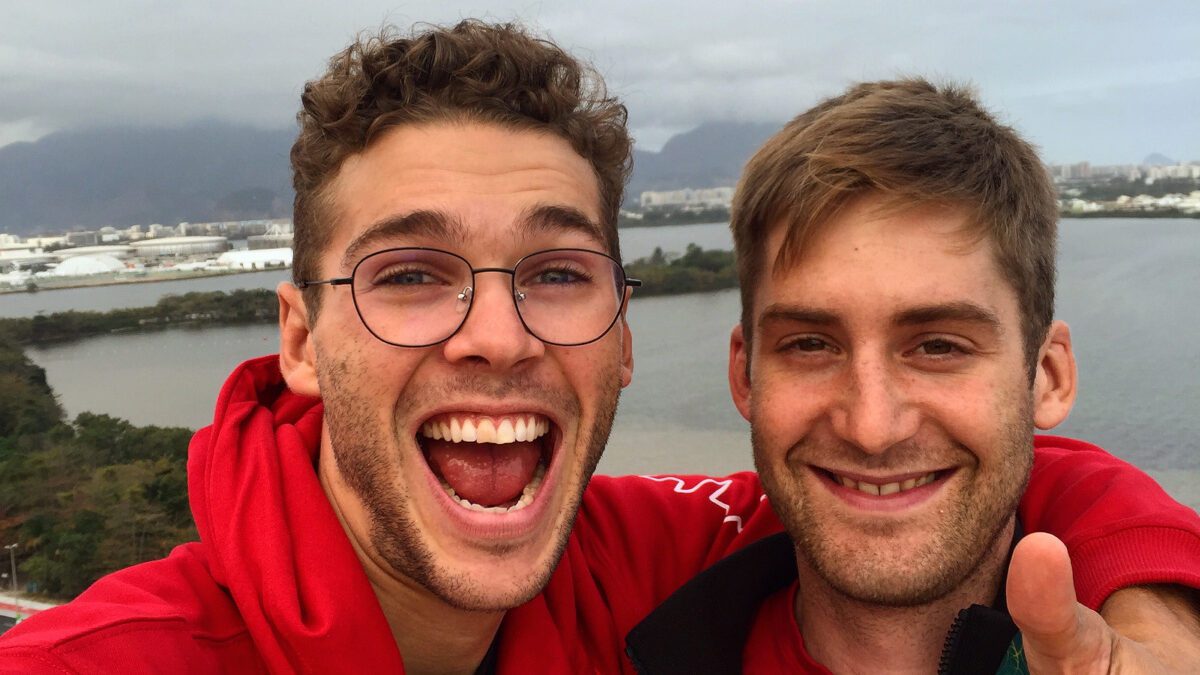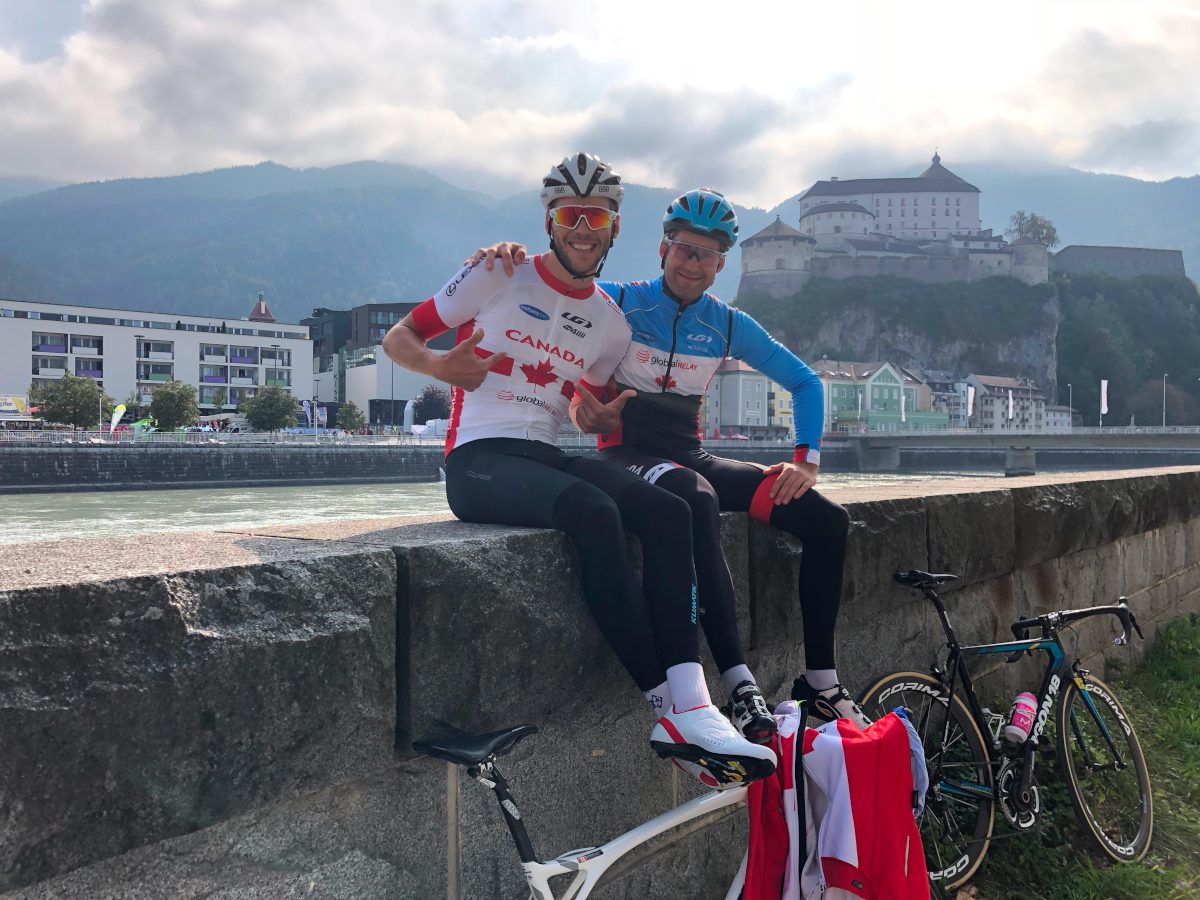Antoine Duchesne and Hugo Houle: The odd couple of Canadian cycling
Very different riders who helped one another grow as athletes and friends
 Photo by:
Courtesy Antoine Duchesne
Photo by:
Courtesy Antoine Duchesne
Soon, in Canadian Cycling Magazine, I have a feature coming out that tells the inside story of Hugo Houle’s historic Tour de France stage win this past summer. For that article, I spoke with Houle’s teammates, directors and friends. They all had great stories and insights into the rider. But one cyclist, Antoine Duchesne, who announced his retirement from the pro peloton this past September, has a unique relationship with Houle. In light of Duchesne’s retirement, I think it’s worth highlighting the pair I’ve dubbed the odd couple of Canadian cycling.
In 2014, Duchesne and Houle got a duplex in Saint-Restitut, France, about 150 km north of Marseille. Duchesne just made the move to the WorldTour, leaving Axel Merckx’s influential Bontrager Cycling Team (now Hagens Berman Axeon) for the Europcar squad. In 2014, Houle returned to Ag2r-La Mondiale for a second season. His first year on the team had been tough. Just after his first training camp with Ag2r, Hugo’s younger brother Pierrik was killed. It was before Christmas. Pierrik was out for a run in the brothers’ hometown of Sainte-Perpétue, Que. He was stuck by a vehicle in a hit-and-run. Throughout 2013, Hugo was working through the profound shock of his brother’s death while living in France and racing around the world. He was managing grief, a new team at the top level of the sport and the challenges that come with getting settled in a new country—all, largely on his own.
Houle and Duchesne knew one another through the Quebec racing scene, where they began competing in their early teens. Duchesne, now 31, is a year younger than Houle. Duchesne rode as a stagiaire on the influential Canadian outfit SpiderTech powered by C10 starting in August 2012. Even though Houle was on that team, too, they didn’t race together in SpiderTech colours.
When both of the riders found themselves riding for French teams, it made sense for them to share a place. “For us, it was obvious—being alone in Europe, being good friends, starting our careers—to move in together,” Duchesne says.
“It was a really good thing,” Houle says. “We helped each other to stay motivated. It was crucial for me. Alone, I don’t think I could have gone through all of this for so many years. I think it’s the same for Antoine. We had some good times training together and dreaming of being better professional riders.”

When the two started living together, one of their differences struck Duchesne quickly. Houle is more of the law-and-order type, quite literally. In CEGEP, he studied policing. “Everything you’d expect from a police or army type, that was Hugo,” Duchesne says. “His hair was always well brushed. His bed was perfectly made. Me. I’ve alway kept my stuff clean and in order, but not at Hugo’s level. At the beginning, I was like, ‘Whoa, really? We have to do all of this?’ But I respected him so much and I wanted things to go well because sometimes it can be hard living with someone else. It made me take care of my stuff better.”
Did Duchesne ever leave dishes around? “I would never have dared to do it,” Duchesne says with a laugh. “But if someone would have left some dishes, that would have been me.”
Even though Houle and Duchesne had the same coach, Pierre Hutsebaut, they approached training differently. “Hugo used to follow all this training to the letter,” Duchesne says. “I was training more by feel and by the terrain. Maybe you could call that a bit more old school. But Hugo was not. He really embraced data. Me? I never really go into that too much. I understand it. But he’d get into graphs and stuff. But now, I think he’s able to train more by feeling.”
While Houle was more by-the-book in training, Duchesne was more pragmatic within races. As a domestique, Duchesne would work hard for riders such as David Gaudu or Thibaut Pinot. Then, the rider from Saguenay, Que., would conserve energy for the next stage or next race where he’d do his duty for his leaders. “Once my job is done, it’s done. I’d pull out. But Hugo,” Duchesne adds of his friend who also rides as a domestique, “until he dies, he’s never going to quit. He’s going to hold on to the last climb or hold on to a sprint for 30th place. Throughout his career, he fights, no matter where he is. And he is always improving. Now, he’s able to win Tour de France stages.”
Houle: rational. Duchesne: emotional. Houle: a bit reserved. Duchesne: easy-going. (With Duchesne retiring, I’ll miss his candid, insightful and often funny interviews.) In spite of their differences, they clicked. “We complemented each other well,” Houle says. “He’s more relaxed. I’m a bit more serious and focused. I helped him to be a little more focused and he helped me to be a little more relaxed and chill out a little.”
“He’s like a brother to me,” Duchesne says of his friend, Houle, who will continue into the 2023 season with Israel-Premier Tech. Duchesne, with his wife Chloé Rochette and their six-month-old son Jules, is now on to his next act.
